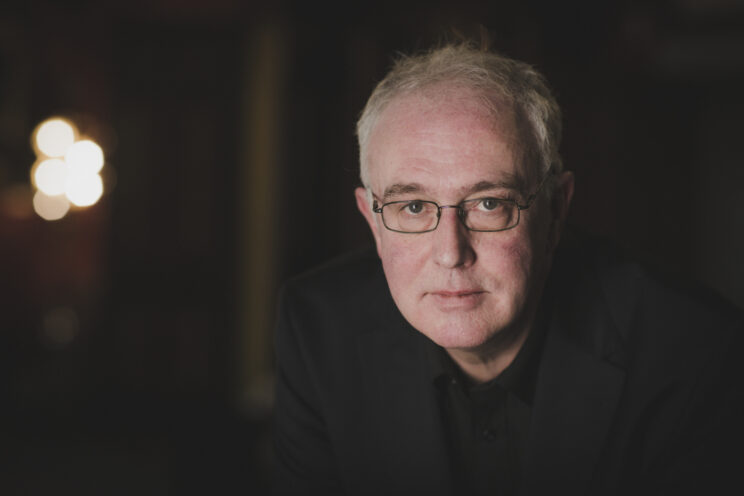Shortlist interview: Joseph O’Connor
30th May, 2024
Shortlisted author Joseph O’Connor tells us more about My Father’s House.
How do you feel about being shortlisted for the Walter Scott Prize for Historical Fiction? Do you consider yourself an historical novelist?
I’ve become one. My early novels and short stories were contemporary, and I’ve been a columnist for radio and newspapers, which involves writing up to the minute, but since my 2002 book Star of the Sea most of my novels have been set in the past.
I think it’s just lovely that the Walter Scott Prize for Historical Fiction exists, and any time a book of mine is nominated I feel delighted for days on end. There’s a personal aspect to this. When I was eight, my late grandfather, a carpenter by trade, made me a bookcase and hung it on my bedroom wall. On one shelf, he placed a Bancroft Classics edition of ‘Ivanhoe’, his favourite novel. So, I think of him any time a book of mine gets shortlisted for the Walter Scott Prize. He’d be chuffed.
How did the people and times you write about in this novel first lodge in your imagination?
My Father’s House is about a small group of amazing people who, at huge risk to themselves, banded together to help escaped Allied prisoners of war in Rome in 1943/44. I’m not quite sure where I first heard about them. One of their leaders, Hugh O’Flaherty, this book’s central character, was raised in County Kerry in Ireland. I might have been told about him at the annual literary festival in Listowel, thirty years ago.
More recently, oddly enough, it was the Covid lockdown that sparked the book. It got me thinking about how extraordinarily interdependent we are, even when we can’t go where we want. Finally, the irreverent, skeptical voice of one of the characters, Delia Kiernan, just kept coming, and it led me into the novel. I felt a story about good people would need a bit of spice and mischief. Often, for me, a book starts with a voice.
What place does research have in your writing? When does the fiction take over from the facts?
I’m fascinated by eyewitness accounts, so I always read first-person reports of the situation I’m writing about. Those might be diaries, newspaper articles, memoirs, letters, the words of songs, even jokes or graffiti. But, pretty soon afterwards, I put the research in a drawer. A novel should be a novel first and last; its main duty is to move the reader. Stories are about people, not facts or themes.
Can writing about the past help us to deal with the present and think about the future?
I think every writer believes this if they’re unaware that they do. The reason we have stories is to point out what is there. Even stories that seem not to be about our contemporary life at all, for example fables and fairy tales, or genres like science-fiction or utopian writing, are often trying to make sense of very human situations and dilemmas. Star Wars may be set a time long ago, in a galaxy far away, but a lot of what is happening is incredibly recognisable to us. And, only on the very surface is Gulliver’s Travels about a man among giants and tiny beings. It’s about mattering and not mattering, about power and about sometimes being afraid. As humans we live with a lot of confusion and danger. Stories are among the lighthouses we’ve built to help us get through.
The Walter Scott Prize has a younger sibling, the Young Walter Scott Prize, which is a creative writing prize for young people (11-19 years), who are asked to write a short story set before they were born. If you were asked for one tip to help young writers start writing historical fiction, what would it be?
Always think of the reader. ‘Panic’, a song I like by The Smiths, has a refrain about how some pop music is disposable because ‘it says nothing to me, about my life’. That’s good advice to the writer of historical fiction too. A story must have resonances in the reader’s own world and everyday experience, otherwise it will feel like a textbook or a lecture, not a story. ‘Feel’ is the key word. A story has to put you into what’s happening, not tell you about it. As readers, we love to recognise something in the characters that have been set before us. The way they talk. Their attitudes. How they fall in love. Their attitude to authority. Their joys, frustrations and sadnesses. How they overcome problems. So, try to say something to your readers about their lives.

